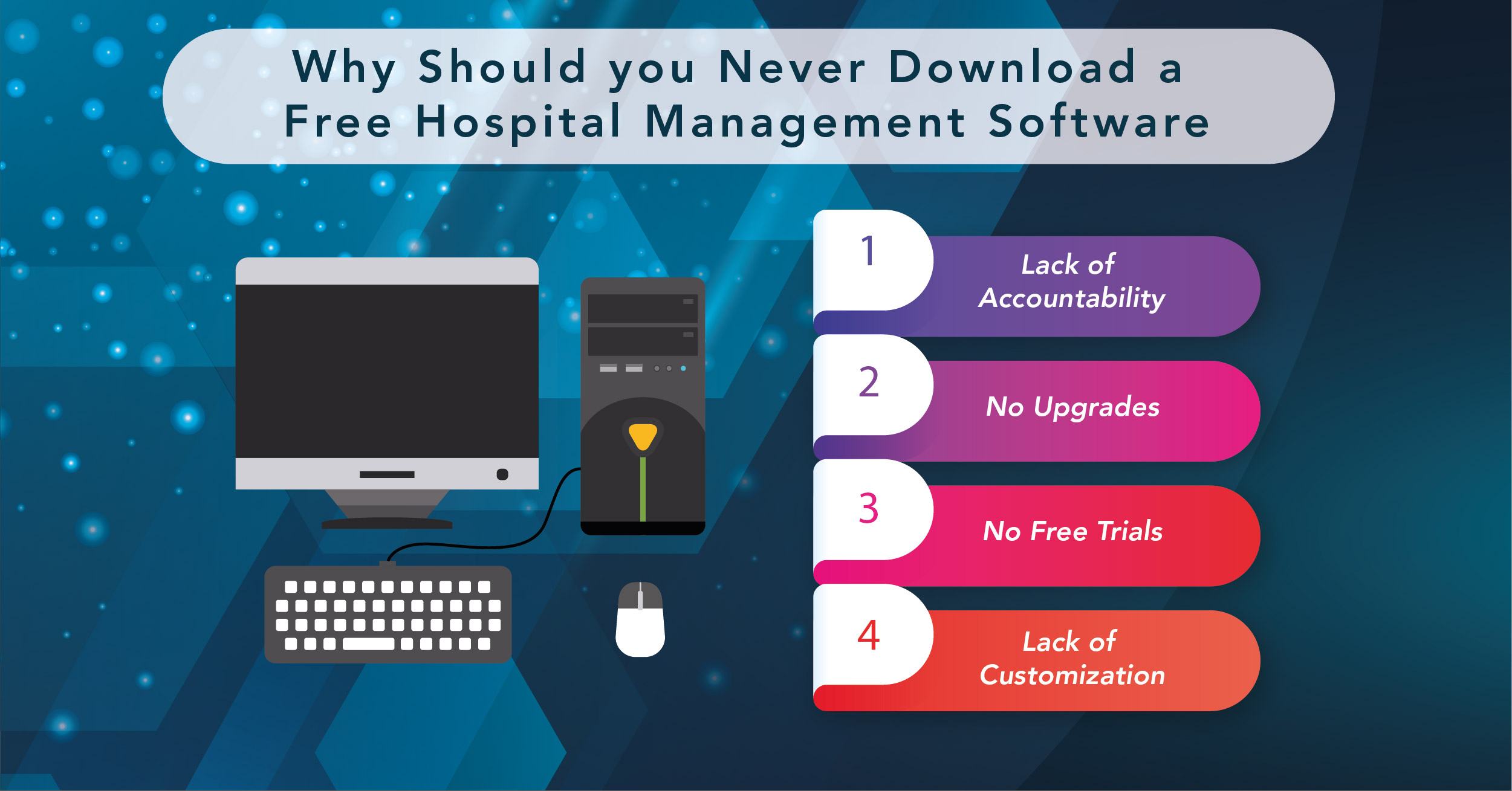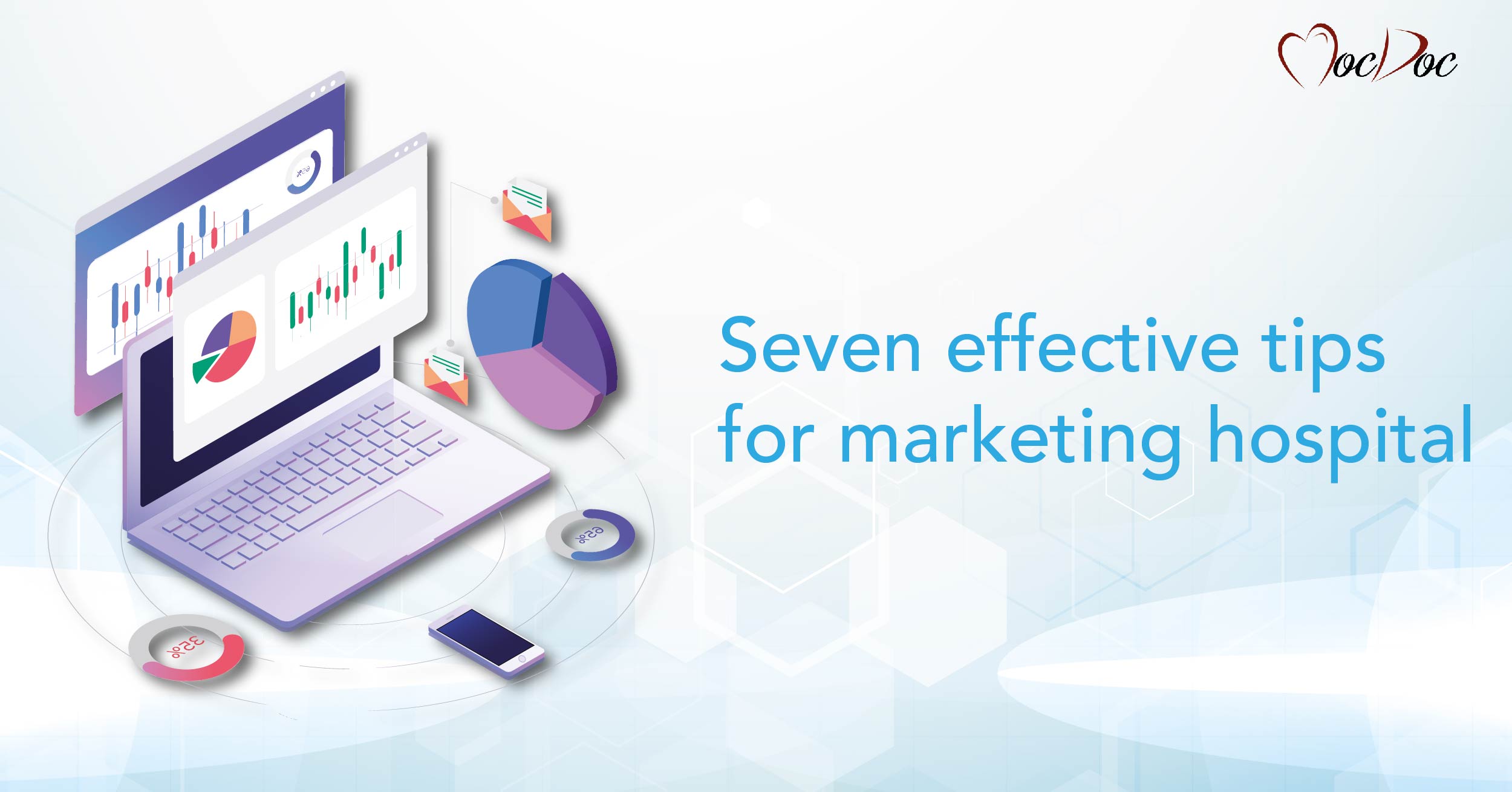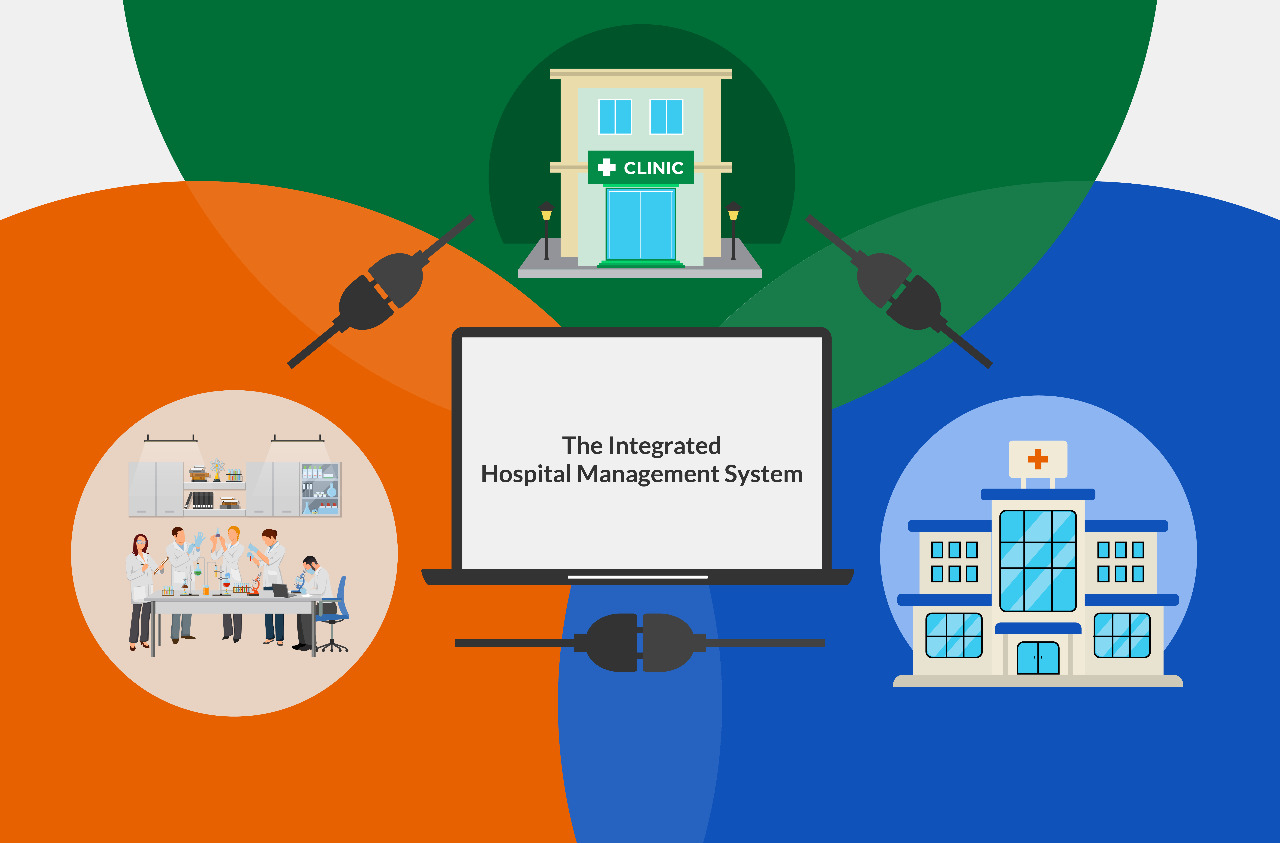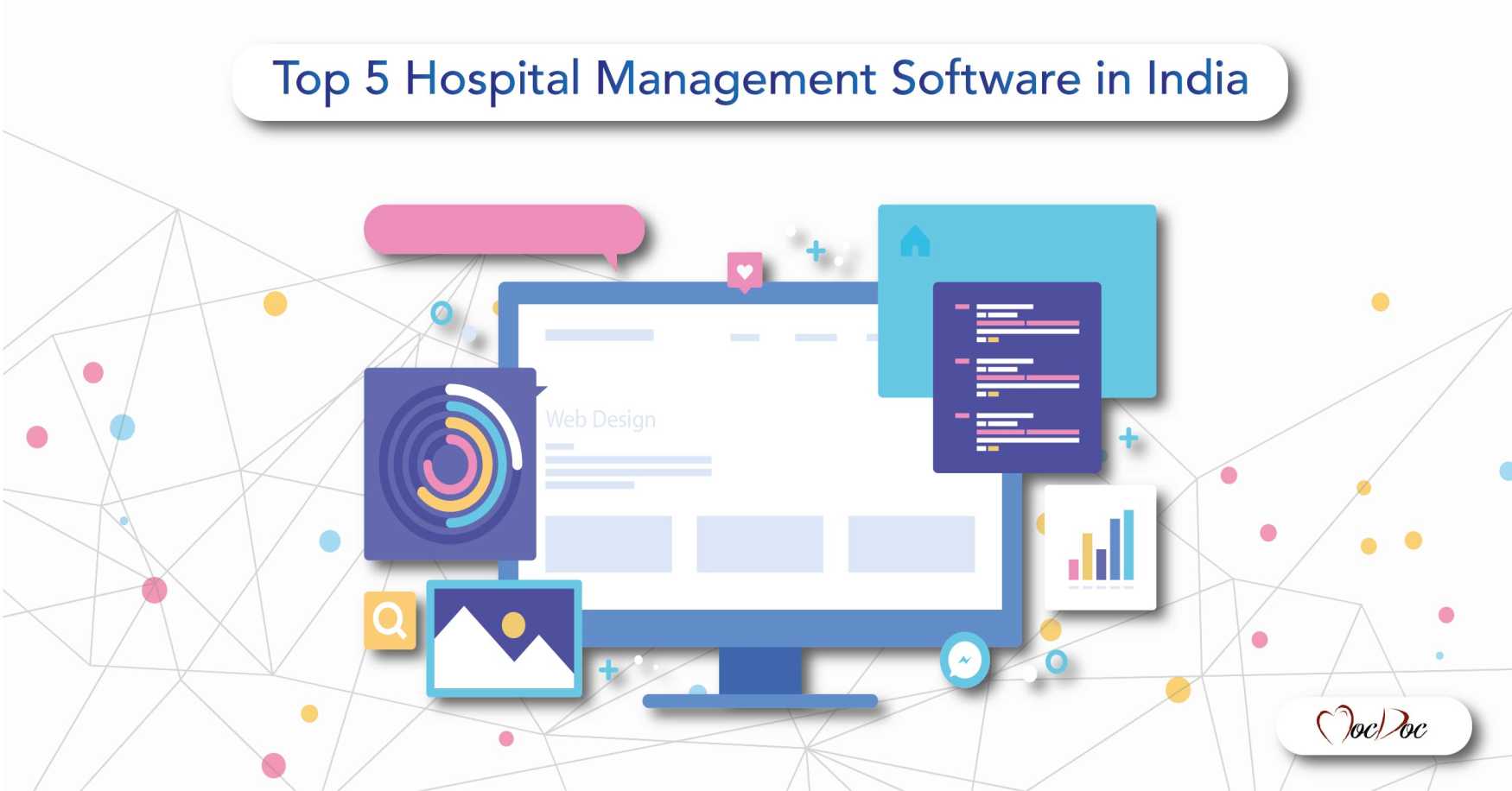MocDoc's Offerings
Scalable Hospital Management System-How it helps a Hospital to grow easily
Published By
Steve
2019031619:30:08
Category HMS
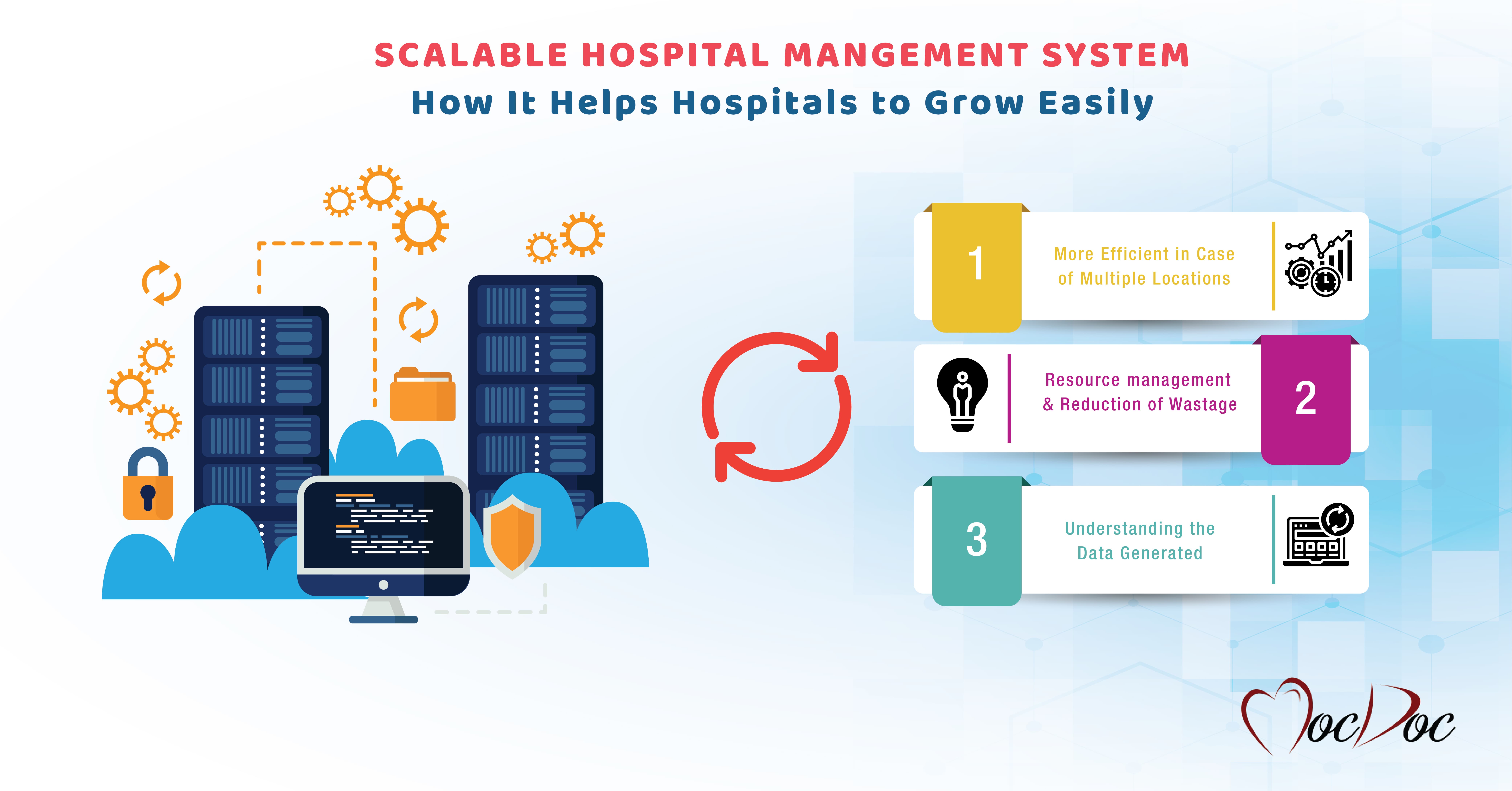

Hospitals are rarely a single department entity. They usually span multiple specialties focusing on different treatment areas, such as pediatrics, neurosciences, gynecology, etc.
There are also various departments taking care of the day-to-day running of the hospital, such as maintenance, accounting, billing, operation theatre, and management. Each of these departments consists of many people carrying out various tasks, ranging in complexity from brain surgeries to fixing overhead lamps.
A single organization may have hospitals across multiple locations, making it difficult to manage them all. A hospital management system helps you manage the enormous complexities of efficiently managing the hospital sustainably.
Even though hospitals span several different areas, in the beginning, it usually involves only a few departments and just the primary number of people required to manage them all.
In such a case, a simple management system with the capacity to deal with relatively less data would work. But as a hospital starts growing, incorporating more specialties and treatment facilities, this system may not be able to deal with the massive flow of data.
A hospital management system could make this process much faster and easier.
As the number of departments and employees grows, the management system would also extend to accommodate the conditions created by the growth, thus aiding the development of the hospital instead of being a hindrance.
Scale up - The role of a cloud-based system
A cloud-based online system has many advantages compared to an offline system regarding scaling up. Instead of making changes in all systems in a hospital network, the differences would have to be made only by the software providers. They could easily be updated to add more departments and employees without reinstalling the updated version in all the systems in a hospital. And since the software and its interface remain the same, there is no need to allocate extra resources to train the users.
A cloud-based system would also be much more efficient in the case of hospitals in multiple locations. The data generated from all the hospitals run by the same organization could be integrated and analyzed to improve overall performance. As new sites come up, the software is updated, and the existing management network can seamlessly integrate without additional training.
This option would allow for better purchase decisions, as requirements for the entire chain of hospitals could be understood and remedied in bulk, thus helping make much better business transactions and improving efficiency for the whole network.
Resource management and reduction of wastage :
A sound hospital management system would also help prevent unwanted waste of resources. Efficient management of the various equipment and disposables inventory would cut short the resources otherwise wasted. In scaling up, there is usually an increased wastage of resources due to purchasing excess materials to prevent a shortage. With an efficient system, such wastages could easily be detected and avoided. This option could provide a smooth scale-up from a small hospital to an extensive network without excessive spending.
Scaling up - Understanding the data generated :
A common problem associated with the scaling up of any system is the overwhelming amount of data generated from the various subsystems. Every bit of data has to be analyzed and compiled in a manner that is easy to understand to make correct decisions at every corner. A scale-up could be a headache for a hospital with a large amount of data generated without an adequate system to manage the data.
An efficient hospital management system would make this entire process a cakewalk by managing the data generated in real time smoothly and quickly. In a sound hospital management system, all the data from the various departments regarding all the matters from procurement of materials, human resources, and energy requirements to billing, accounting, and inventory management is compiled and represented in a meaningful manner.
This leads to a quicker and easier decision-making process and, therefore, a more accessible, smoother, and efficient scale-up.
Management of the extra human resources required for scale-up :
The efficient running of a hospital requires that all the stakeholders play their roles, and to enable this; they should be able to manage their work quickly and intuitively. A sound hospital management system allows smooth work delegation and easy access to the information required for the task.
For example, it should allow a doctor to enter information regarding a patient and their treatment regime and enable the pharmacist to track the inventory quickly. With an efficient system, it would also be able to evaluate the work done by them. Such easy management of the entire workforce, without causing any hindrance to them, but help them with this, would enable the hospital to grow.
In short, a sound hospital management system would make it easier to scale up the hospital network by efficiently managing the resources, avoiding waste, creating an efficient workforce, and better data management. Such a system could provide hassle-free patient care, making everyone’s work much more manageable.
Related Articles
Why you should never download ...
When searching for software, almost everyone looks..... Read more
Seven effective tips for marke...
Inspiring patients to reach your hospital is not e..... Read more
Why use an integrated hospital...
What is an integrated hospital management syste..... Read more
Top 5 Online Hospital Manageme...
Hospital Management Software is a vital business t..... Read more
